Author Archives: Dawit Bekele
Author Archives: Dawit Bekele
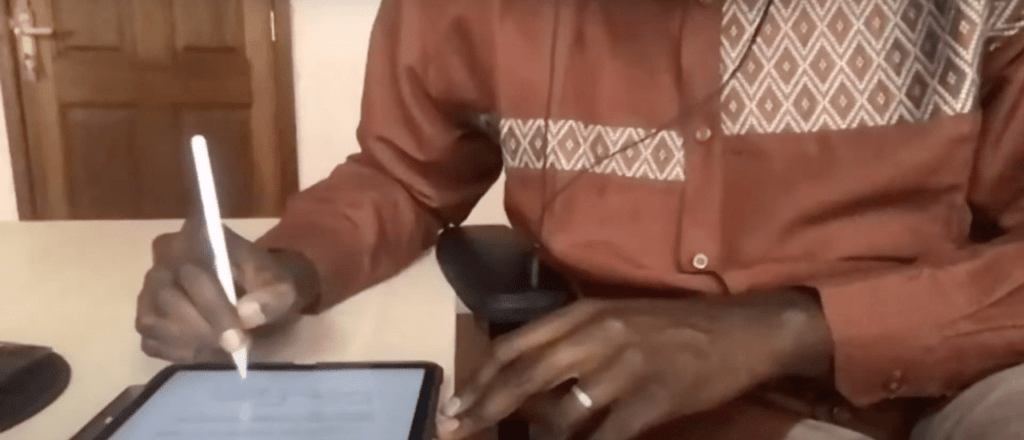
Last week, we announced an expanded partnership with AFRINIC, the Regional Internet Registry for the African region. On Friday, 24 July, Eddy Kayihura, Chief Executive Officer at AFRINIC, and I, on behalf of the Internet Society, signed a Memorandum of Understanding (MoU) between the two organizations to work on several projects including Internet measurements, routing security, and infrastructure and community development.
Right after the virtual signing ceremony, we described the first collaborative activity under the new MoU – the Africa Internet Measurements. Part of our Measuring the Internet project, the effort aims to tackle the problem of Internet resilience and reliability in the continent.
Although Africa has significantly increased Internet penetration in the last decade, the continent must improve the resilience and the reliability of its Internet infrastructure to pave the way for future innovations and technological advancements as expressed in the African Union’s 2063 agenda. Without proper measurements and data, we don’t know where the problem is, what we need to improve, or if our solutions work. Much of the available Internet measurement data relating to Africa measures only specific types of Internet traffic and not overall Internet resilience, which is the ability of the network to Continue reading
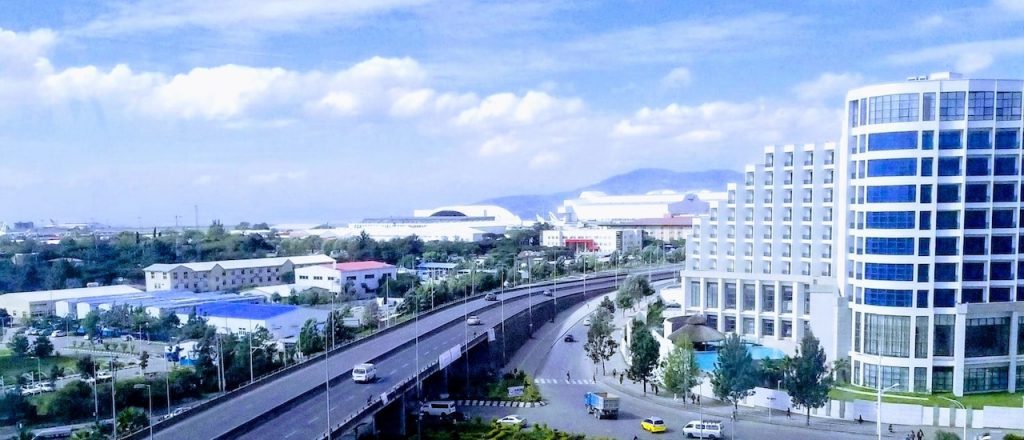
When it comes to Ethiopia’s future online, there are many reasons to feel optimistic.
The country has one of the fastest-growing economies in the region, is strategically placed, and has a population of over 105 million, 60% of whom are under the age of 30. All of these are assets to make it a regional digital giant.
But this won’t happen unless Ethiopia takes some strategic moves. Internet penetration is still very low compared to its peers in Africa. The rural areas are still largely unconnected to the Internet. Only cities enjoy 3G access and 4G is only available in the capital. In spite of successive price cuts by Ethio telecom in the last year, the Internet is not affordable for the majority of Ethiopians.
It’s not that the government has not wanted to connect the rural areas. In fact, the rationale that the Ethiopian government had to keep the monopoly was to use the money generated from cities to invest in the rural areas. However, this strategy has clearly not worked since Ethiopia’s rural areas are not better connected than those in countries that have not had a government monopoly on the sector, such as Kenya.
It is Continue reading
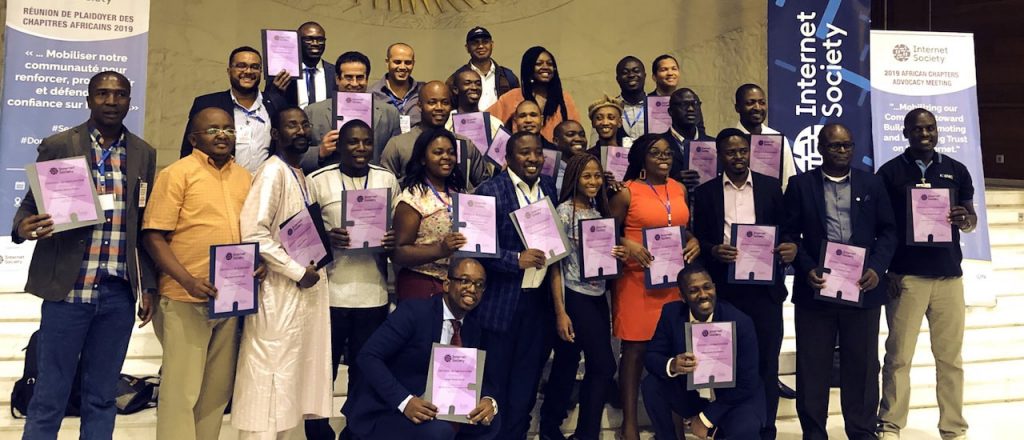
In collaboration with the Africa Union Commission (AUC), the Africa Telecommunication Union (ATU), and Omidyar Network, from 8-11 April 2019 the Africa Regional Bureau successfully gathered in Addis Ababa, Ethiopia 103 participants comprising Internet Society Chapter leaders, African Regional economic bodies, privacy experts, regulators, and data protection agencies to a two-day workshop on IoT Security, Privacy, and Digital ID followed by the 2019 African Chapters Advocacy Meeting.
The first day of the workshop focused on IoT opportunities and security considerations. It explored the IoT landscape in Africa and shared active deployments and chapter-led projects. The day also discussed IoT security and privacy considerations with emphasis on frameworks that could be implemented to ensure the security and safety of IoT devices. A dedicated session on aligning policy and IoT security needs shared the experience of the Senegal multistakeholder IoT security process and motivated member states to initiate a similar process in their countries.
The second day focused on localizing the AUC and Internet Society Personal Data Protection Guidelines. Our partners AUC, Omidyar Network, Mozilla Foundation, and UNECA unpacked issues related to digital identity, personal data protection and privacy in the region. The meeting explored the nature of policies in place to Continue reading
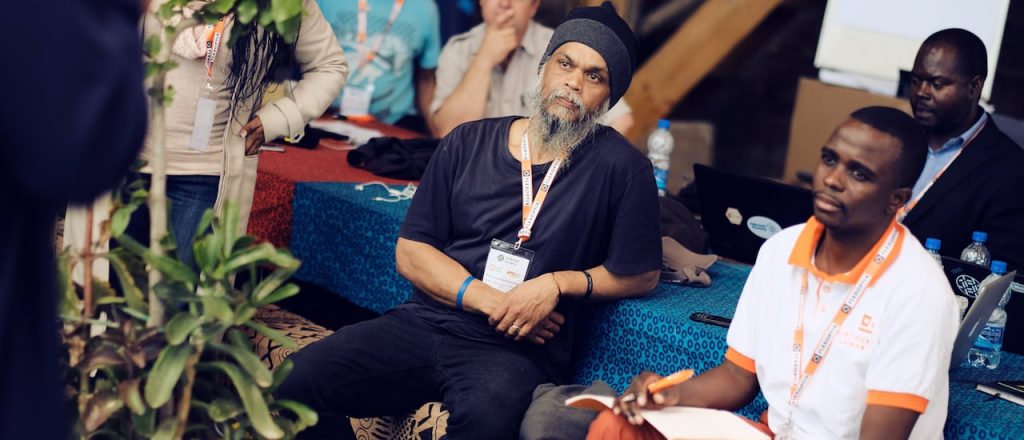
At the recent African IGF in Khartoum, on November 5, participants of the workshop on “Strengthening the Institutional Capacity of Critical African Internet Institutions” hailed the achievements of African Internet institutions in bringing connectivity and broadening access in the last decades. They also recognized their shortcomings and stressed the need to address them so that they continue to serve the continent amidst the potential challenges that it will be facing in the future, as the African Internet grows and more users come online. The workshop was organized by AFTLD, the African Union Commission, and the Internet Society.
Fifteen years ago, Africa had less than 3% Internet penetration and was trailing far behind the rest of the world. Today, with a third of its population connected to the Internet, Africa’s connectedness is still behind but in a much better position than before, since the gap in Africa and the rest of the world has been shrinking. In fact, some countries in Africa have connectivity levels comparable to those of developed countries – something unimaginable fifteen years ago!
The progressive increase in Internet penetration in Africa could not happen without its regional Internet organizations, known as Af*, and the various NOGs (Network Continue reading

Imagine how much the Internet has changed our lives in the last few decades. Today, thanks to the Internet, we can communicate with anyone around the world, instantaneously, reliably and cheaply. This enables us not only to be close to our friends and family that may be far away but also to bridge the knowledge gap that we have with the developed world. It also opens many work opportunities that we wouldn’t even imagine just a few years back and democratize media, allowing anyone to reach instantaneously millions of people at almost no cost, forcing transparency in governance more than ever before.
At national level, our economies are benefiting from the economic opportunities, directly and indirectly related to the Internet. Experts say that this is just the tip of the iceberg and that there are many more opportunities that are yet to be discovered.
However, we cannot deny that the Internet also comes with increasing challenges. Cybercrime is endangering Internet users, organizations and even countries. Our privacies are threatened every day. And more … It is therefore appropriate that governments act to protect its citizens from the negatives impacts of the Internet by enacting laws and regulations. It was therefore Continue reading
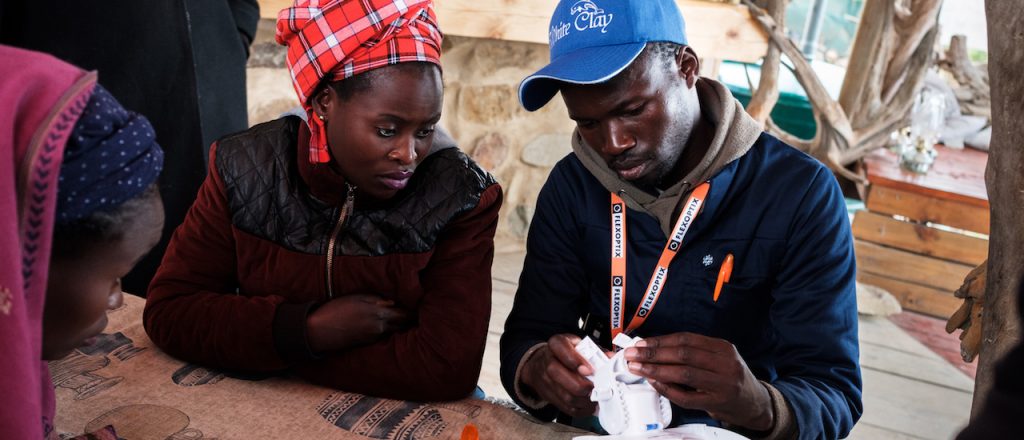
Last week was an exceptionally exciting week for the African Regional Bureau as we successfully held, in partnership with the Association for Progressive Community (APC), the 3rd Summit on Community Networks in Africa from 2-7 September 2018, at Wild Lubanzi Trail Lodge, Eastern Cape, South Africa.
The objective of the Summit was to promote the creation and growth of community networks, increase collaboration between community network operators in Africa and to provide an opportunity for them to engage with other stakeholders.
The event was attended by more than 100 participants from at least 18 countries worldwide, 13 from Africa (Kenya, Uganda, South Africa, DRC, Zimbabwe, Zambia, Malawi, Namibia, Cameroon, Tanzania, Sudan, Egypt, and Ethiopia) and 5 from Spain, Germany, Argentina, India, and the U.S. The formal opening of the Summit was addressed by representatives from the Ministry of Telecommunications and Postal Services of South Africa.
This year’s Summit turned out to be very special as 12 established community networks in Africa and 18 other communities (particularly from rural South Africa interested to replicate initiatives) attended and contributed to the discussions held throughout the 6 days.
The week started with 2 days of training, which provided community network operators with clear Continue reading
Earlier this month, the African Internet community gathered in Dakar, Senegal for the Africa Internet Summit (AIS). The event highlighted some of the great hopes, as well as some of the concerns, that the African Internet community has for the future.
I had the personal honor of speaking at the Opening of the AFNOG meeting where I talked about what the Internet has brought to Africa and the promise that it still holds. I highlighted how Africa has experienced tremendous growth in Internet access and usage over the past few years, and how enormous development opportunities have been opened up for its young population. Believing that we need to put people at the center of our decision-making and build an Internet where everyone’s voice counts, I encouraged the Internet community in Africa to continue to embrace diversity, inclusion, and equality in order to shape an Internet that best serves the billions of people who use it every day, now and into the future.
In many ways, AIS is a showcase for the progress that is being made in creating an Internet for everyone. Key groups are making sure that their voices are being heard.
For example, at a Women in Continue reading
Imagine you wanted to have an Internet connection and someone decided that you had to wait an undefined amount of time (maybe a year, maybe 10 years) to get access. Would you find it fair? I wouldn’t!
Unfortunately, this is the situation that millions of people in remote communities around the world have to accept. They will have Internet access only when operators decide to give them access which can be in a decade or more. These people won’t enjoy all the benefits we are enjoying today for a long time. And as more and more services go online – and exclusively online – they will not get the services they used to have since the services have moved to a new place where they are not allowed to be.
This is happening because operators can’t expand everywhere at the same time; they have to choose where they go this year, then next year, etc. There are some places where they will never go because those places are not going to bring them money. Among those regions that operators will never choose to go, we find, sadly, are the poorest rural areas that desperately need the economic and development opportunities Continue reading
Some time ago, a European who visited my country and saw all the potential it possesses asked me “why is your country poor?”. It was a compelling question that made me think for years. It is true that there are external reasons such as the acts of colonial and other powers who have done everything to block economic progress. But, I have to admit, there is at least one major internal reason: we missed many opportunities for development.
We missed the industrial revolution of the 19th century that propelled Japan and many European countries to development. We missed the development opportunity that many South East Asian countries grabbed since the 1960s. We missed many other opportunities, simply because we didn’t realize they were there or we just could not agree on how to make the best out of them.
The African Union has a very clear vision to transform the socio-economic condition of the continent by 2063; by this year, the Union will be celebrating its hundredth anniversary (see Agenda 2063). This is a great vision. But, is Africa ready to use the opportunities that exist today and can enable it to arrive to its aspirations enshrined in Continue reading
About 70 years ago, the world was introduced to the digital computers revolution which made the computation of millions of operations as fast and easy as 1+2. This simplified so many time-consuming activities and brought about new applications that amazed the world. Then, about 40 years ago the advent of networks and inter-networks (or the Internet) revolutionized the way we work and live by connecting the hundreds of millions of computing devices that have invaded our homes and offices.
Today, we are at the beginning of a new revolution, that of the Internet of Things (IoT), the extent of which might only be limited by our imagination. Internet of Things refers to the rapidly growing network of objects connected through the Internet. The objects can be sensors such as a thermostat or a speed meter, or actuators that open a valve or that turn on/off a light or a motor. These devices are embedded in our everyday home and workplace equipment (refrigerators, machines, cars, road infrastructure, etc.) or even the human body. These devices connected to powerful computers in the “cloud” might change our world in a way that few of us can imagine today. It is estimated that Continue reading